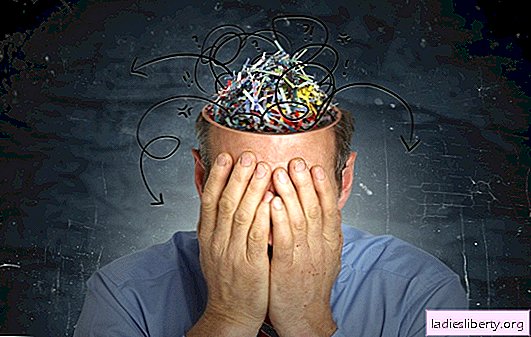
Do you constantly scroll through your mistakes? Do not stand when in some way inferior to others? Do you want to do everything perfectly or not to do at all? Need perfection from others? Congratulations, you are a perfectionist.
Many of us strive for continuous development, for professional growth, for the improvement of personal qualities and skills in performing certain actions. This need seems so natural and necessary that we are surprised when we meet people who do not set goals and claim that they are happy with everything. We regard such a passive position as a clear limitation of man.
At the same time, there are a lot of people who are successful in training and diligently polish any work that they undertake, and there are no special achievements in their life. Is there any limitation in this?
You know the expression: “The best is the enemy of the good”. But why exactly? Good can still be improved. But practice presents a different picture - sometimes they are so fond of improvements that they ruin everything that is quite worthy, which took place before immersion in improvement.
A vivid example is experiments on appearancewhen they start with slight suspenders, but end with distorted facial features. Or an example of the launch of a working project, in which details are so meticulously worked out that the project itself becomes irrelevant, because competitors have already outstripped and implemented a similar idea. And how many term papers and dissertations not delivered on time because of the desire to bring the material to perfection! Or how many missed opportunities for a good rest due to overly thorough general cleaning of the apartment!
Such hypertrophied responsibility or an infinite desire to achieve perfection is based on a special quality called perfectionism. Perfectionism implies the presentation of very high demands on oneself, on others, on the results of work, on the process of activity itself, that is, on everything that a person comes into contact with.
A perfectionist may not speak out loud about his requirements, but he is still recognizable by his work style, attention to detail, and reverent attitude to order. It would seem very meritorious qualities. But often it is they who become an obstacle and a restriction for personal growth and advancement.
Growth and development require a person to manifest internal leadership, which, in turn, is based on both risk preparedness and openness to the new. A perfectionist is not ready to take risks and take unfamiliar things on faith. It is important for him to thoroughly study the issue, and then carefully take up its implementation. Of course, in this matter, our meticulous hero will become savvy over time, his awareness and skills will expand, so we can state individual development. Yes, only knowledge and skills are not important in their own right, their value lies in the application. Will they remain relevant by the time the perfectionist brings them to his ideal?
Perfectionists are as demanding of others as they are of themselves. They trust only those people who are very attentive to everything. If their loved ones differ in a different approach, they will redo their household chores, correct something, make comments. If a more superficial attitude is observed among colleagues, perfectionists will criticize their work - aloud or to themselves they will do it, but they will not do without criticism.
What more - good or harm - in the excessive pursuit of the ideal?
The fact that a person wants to get to the bottom of the main thing, strives for a qualitative result, is undoubtedly useful. Such an attitude forms competence in narrow specialized fields. But if you achieve perfection in all life and domestic affairs, you can bring to an emotional breakdown not only yourself, but also those around you. The time will come when the perfectionist will plunge into a state of chronic stress and irresistible fatigue.
One of them may be in constant tension because of the desire to get the perfect result, the other - because he deprived himself of the right to any mistake whatsoever, the third - because he does not want to become like people with a superficial attitude, the fourth - because he considers himself the best and fears to undermine his own reputation in the eyes of others.
Perfectionists may have many reasons to keep the bar, which they themselves set. The main thing is that they are all artificial and far-fetched, since the true development of the personality does not imply a constant digging to the very depths of any issue, but a progressive movement. It’s like in a dispute - you can stand your ground because of possession of accurate information, but not so important for the development of further relations, or you can meet your opponent, accept his opinion and become a notch in the ability to negotiate.
The definition of perfectionism not in vain includes the words "excessively", "very high requirements", which already emphasizes the violation of the measure, and therefore warns of possible harm to the development of the individual.
How to moderate your own excessive pursuit of excellence?
If you notice the actions and judgments of a perfectionist, try to change your attitude, for your own benefit:
• Learn to separate all tasks by importance and be sure to identify the category of those tasks that can be done with minimal diligence.
• Learn to praise yourself while doing things. And if you still haven't praised yourself, then just learn to do it.
• Allow yourself to suspend unfinished work from time to time, relax and rest.
• Find yourself a hobby that does not bring any results, except as a pleasure from the process itself.
• Build your ability to accept others as they are, without criticism or annoyance.
Any virtue is only useful to a certain extent. If its "dose" is excessive, harmful effects cannot be avoided. The pursuit of excellence will bear fruit only until it spreads to most areas of life.











